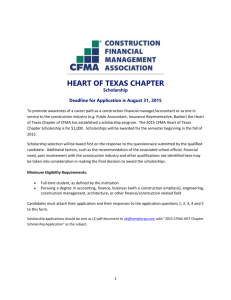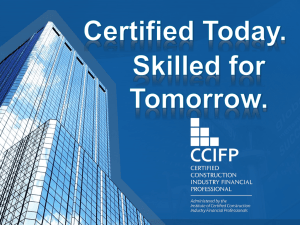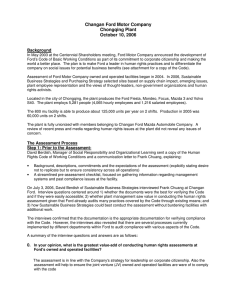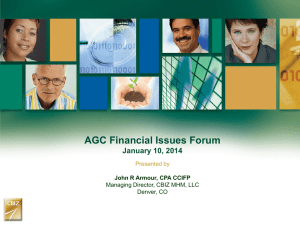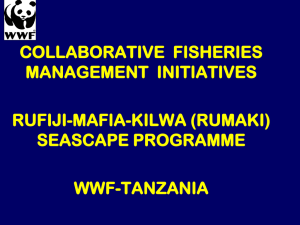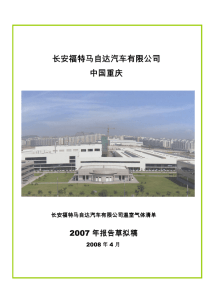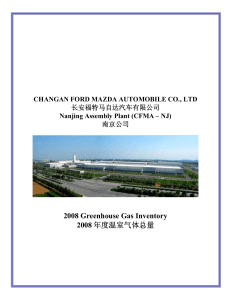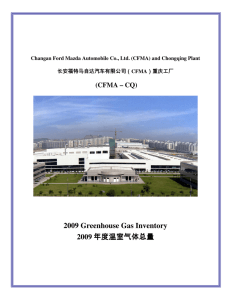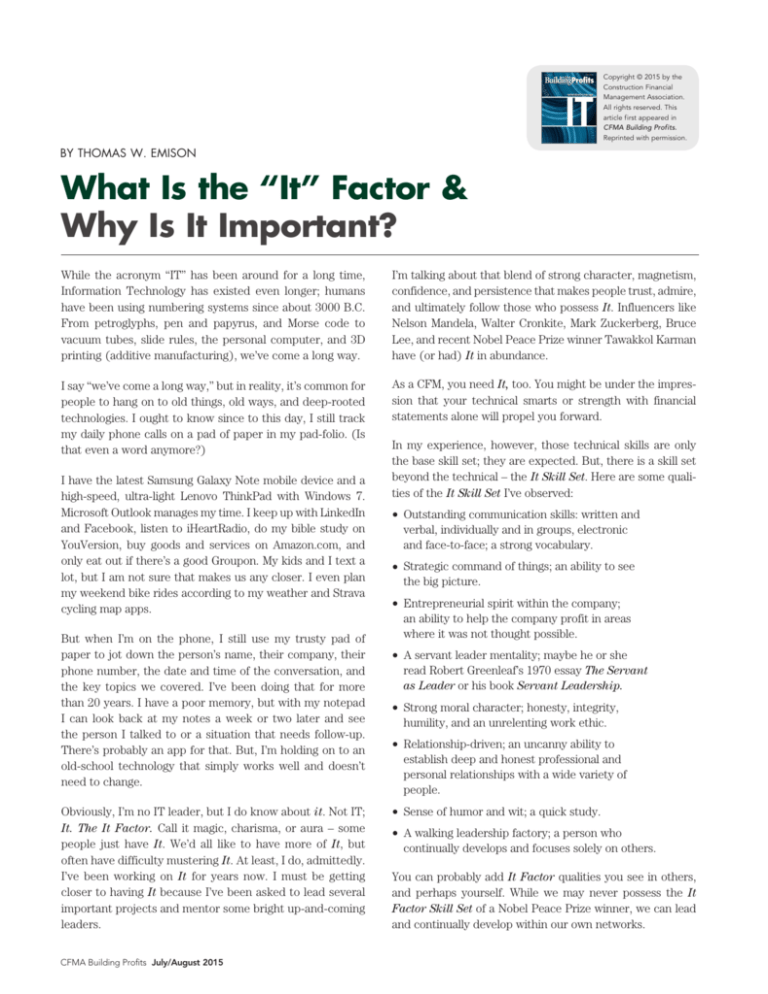
Copyright © 2015 by the
Construction Financial
Management Association.
All rights reserved. This
article first appeared in
CFMA Building Profits.
Reprinted with permission.
BY THOMAS W. EMISON
What Is the “It” Factor &
Why Is It Important?
While the acronym “IT” has been around for a long time,
Information Technology has existed even longer; humans
have been using numbering systems since about 3000 B.C.
From petroglyphs, pen and papyrus, and Morse code to
vacuum tubes, slide rules, the personal computer, and 3D
printing (additive manufacturing), we’ve come a long way.
I’m talking about that blend of strong character, magnetism,
confidence, and persistence that makes people trust, admire,
and ultimately follow those who possess It. Influencers like
Nelson Mandela, Walter Cronkite, Mark Zuckerberg, Bruce
Lee, and recent Nobel Peace Prize winner Tawakkol Karman
have (or had) It in abundance.
I say “we’ve come a long way,” but in reality, it’s common for
people to hang on to old things, old ways, and deep-rooted
technologies. I ought to know since to this day, I still track
my daily phone calls on a pad of paper in my pad-folio. (Is
that even a word anymore?)
As a CFM, you need It, too. You might be under the impression that your technical smarts or strength with financial
statements alone will propel you forward.
I have the latest Samsung Galaxy Note mobile device and a
high-speed, ultra-light Lenovo ThinkPad with Windows 7.
Microsoft Outlook manages my time. I keep up with LinkedIn
and Facebook, listen to iHeartRadio, do my bible study on
YouVersion, buy goods and services on Amazon.com, and
only eat out if there’s a good Groupon. My kids and I text a
lot, but I am not sure that makes us any closer. I even plan
my weekend bike rides according to my weather and Strava
cycling map apps.
But when I’m on the phone, I still use my trusty pad of
paper to jot down the person’s name, their company, their
phone number, the date and time of the conversation, and
the key topics we covered. I’ve been doing that for more
than 20 years. I have a poor memory, but with my notepad
I can look back at my notes a week or two later and see
the person I talked to or a situation that needs follow-up.
There’s probably an app for that. But, I’m holding on to an
old-school technology that simply works well and doesn’t
need to change.
Obviously, I’m no IT leader, but I do know about it. Not IT;
It. The It Factor. Call it magic, charisma, or aura – some
people just have It. We’d all like to have more of It, but
often have difficulty mustering It. At least, I do, admittedly.
I’ve been working on It for years now. I must be getting
closer to having It because I’ve been asked to lead several
important projects and mentor some bright up-and-coming
leaders.
CFMA Building Profits July/August 2015
In my experience, however, those technical skills are only
the base skill set; they are expected. But, there is a skill set
beyond the technical – the It Skill Set. Here are some qualities of the It Skill Set I’ve observed:
• Outstanding communication skills: written and
verbal, individually and in groups, electronic
and face-to-face; a strong vocabulary.
• Strategic command of things; an ability to see
the big picture.
• Entrepreneurial spirit within the company;
an ability to help the company profit in areas
where it was not thought possible.
• A servant leader mentality; maybe he or she
read Robert Greenleaf’s 1970 essay The Servant
as Leader or his book Servant Leadership.
• Strong moral character; honesty, integrity,
humility, and an unrelenting work ethic.
• Relationship-driven; an uncanny ability to
establish deep and honest professional and
personal relationships with a wide variety of
people.
• Sense of humor and wit; a quick study.
• A walking leadership factory; a person who
continually develops and focuses solely on others.
You can probably add It Factor qualities you see in others,
and perhaps yourself. While we may never possess the It
Factor Skill Set of a Nobel Peace Prize winner, we can lead
and continually develop within our own networks.
strategic
CFM
So, why is it so important to your career as a CFM that you
possess and develop these qualities? The short answer: To
be a relevant leader in your organization. This is sometimes
difficult in construction companies, which are typically led
by operations and project executives.
Although understanding and managing IT is the main theme
of this issue, don’t forget about your own It Factor. Recently
in Chicago at CFMA’s Annual Conference, I noticed a lot of
you have It. Congratulations and keep sharing It! n
Often, the Controller (or even the CFO) is viewed as just
a resource. In some cases, a necessary resource, but not a
strategic one. Your ability to contribute at the highest corporate level – to be heard and respected – may hinge on your
It Factor Skill Set more than you realize.
THOMAS W. EMISON is a Construction Industry
Consulting Director at Eide Bailly, LLP in Minneapolis, MN.
For example, Steve Tenney, who is a CFO and CFMA’s
Immediate Past Chairman, has It. His It Factor Skill Set not
only helped propel him into national roles within CFMA, but
also helped him to grow into a top strategic leader and owner
within Story Construction Co., a merit shop GC/DB/CM based
in Ames, IA. He’s too humble to brag, but, then again, humility
and respect are part of his It Factor Skill Set.
Tom has more than 25 years’ experience working with
construction companies in the areas of strategic business planning, marketing, and operations improvement.
A member of CFMA’s Twin Cities Chapter, Tom is a
longtime author for CFMA Building Profits and presenter
at CFMA’s Annual Conference & Exhibition and CFMA
chapters across the U.S. He is also an active member of
AGC’s National Marketing Committee.
Phone: 612-253-6510
E-Mail: temison@eidebailly.com
Website: www.eidebailly.com
July/August 2015 CFMA Building Profits

